“The most noble cause in the world is the liberation of the mind and spirit — beginning with our own,” noted poet and civil rights activist Maya Angelou when she came to Bryant's campus in 1996. Every step of progress is measured in firsts, audacious foundations built, brick by brick, by those who dared to make a difference — and who continue to inspire change.
This Black History Month, we celebrate the people and the moments that have made a difference at Bryant University — from brave trailblazers and bold leaders to historic milestones and celebrations with purpose — as we reflect on how we can all come together to continue to build a better, more inclusive Bryant.
Special thanks to Adriana Minacapilli, library assistant for collection management and digital services at Bryant University, and the staff of the Douglas and Judith Krupp Library for their assistance with this project.
A timeline of moments in black history at Bryant:
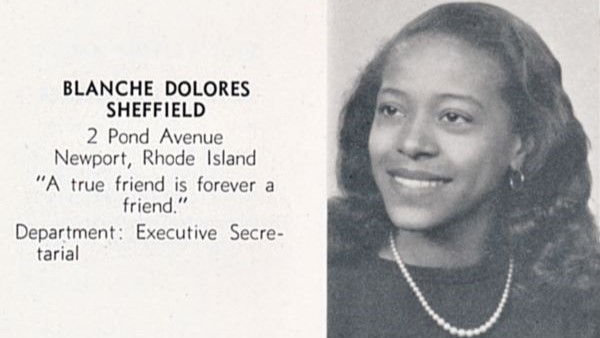
1946: Blanche Dolores Sheffield, the first Black woman on record to graduate from Bryant College, obtains her Bachelor of Secretarial Sciences. During a time of blatant racism and intolerance, Sheffield persevered, graduated, and became an active alumna. After graduation, Sheffield worked in a variety of capacities, including with the United Nations Educational, Scientific, and Cultural Organization (UNESCO) in Kenya, Ghana, and the Congo.
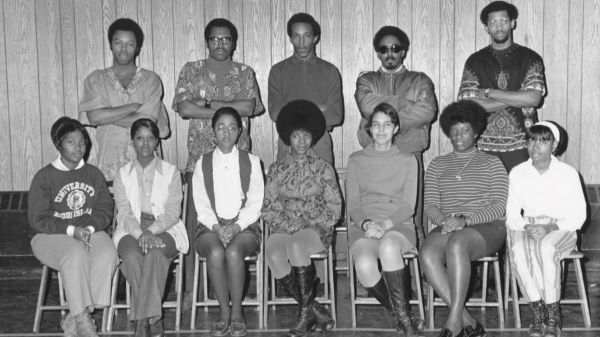
1969: The Wantu Wazuri ("Beautiful People" in Swahili) Bryant student organization, later known as the Minority Business Students Association, is founded. Wantu Wazuri dedicated itself to promoting Black students' pride in their culture and heritage and sponsored speakers and events, including career days, dances, festivals, lectures, and informational events.
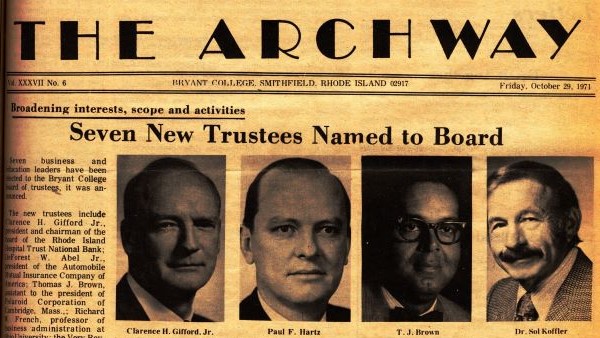
1971: Thomas J. Brown is named a trustee at Bryant, making history as the first Black person named to the board. Brown, who served on the board for 16 years, was an active member of the board's executive committee and also served as chair of the student life committee, among other responsibilities. He once described his philosophy as such: "If I do something for you, I never ask for a favor for myself in return. But I may ask you to do something for someone else."
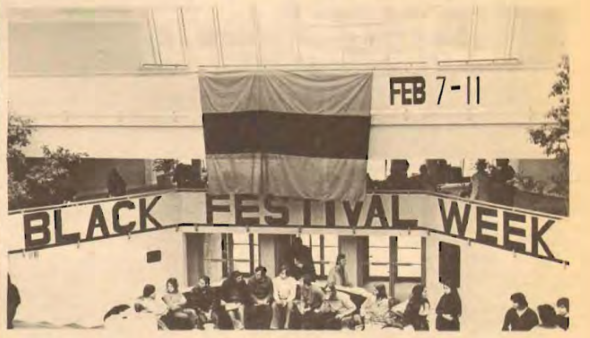
1973: Bryant’s first Black Festivals Celebration is held from February 7 to11. Organized by Wantu Wazuri and advisor and faculty member Delores McQueen, the celebration’s events included poetry readings, a Black dance workshop, theatrical performances, a guest lecture from Bro. W. Brown, Jr., on Black Americans in aviation, "An Evening of Soul” with soul food and music, and a Gospel mass featuring members of the Ebenezer Baptist Choir.
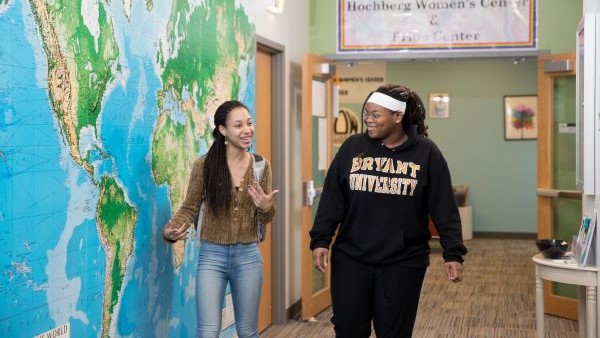
1977: The Intercultural Center (ICC) is founded to serve the needs of a small, primarily Black, multicultural student population at Bryant. Today, the ICC offers a range of cultural programs and activities while fostering diversity and inclusion among students on campus. The center’s staff counsel and mentor international and multicultural students, serve as their advocates, and collaborate with faculty and administrative departments on programming to enhance appreciation for and awareness of cultural diversity within the Bryant community.
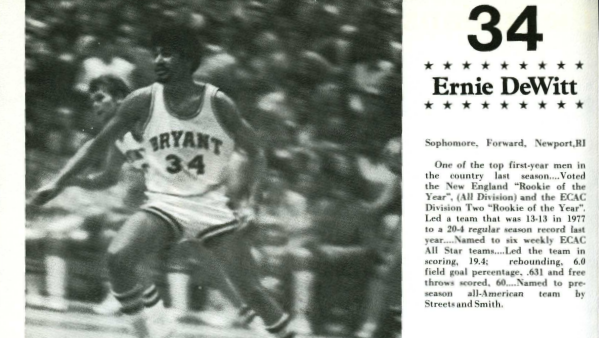
1981: Ernest DeWitt ’81 caps a record-breaking career in Men’s Basketball by being named first team All-America and ECAC Division 2 Player of the Year. A three-time National Basketball Coaches Association All-American, New England Rookie of the Year (all divisions), and ECAC Division 2 Rookie of the Year, DeWitt is the only basketball player in Rhode Island collegiate history to score 2,000 points and grab 1,000 rebounds.
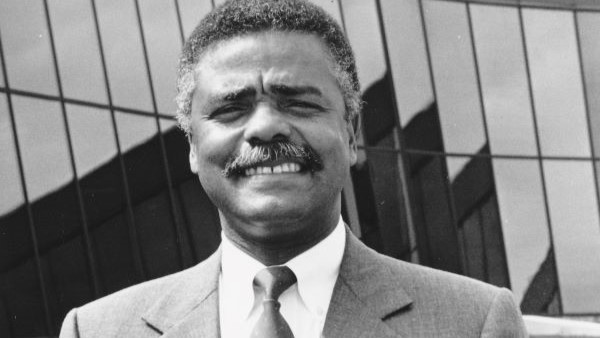
1989: Dr. William E. Trueheart ’96H becomes the sixth president of Bryant and the first Black college president in New England. Under Trueheart’s leadership, Bryant made significant strides, including attaining accreditation from the prestigious AACSB, increasing the number of full-time faculty by 55 percent, achieving a greater diversity of faculty, students, and staff, and launching the Center for International Business and Economic Development.
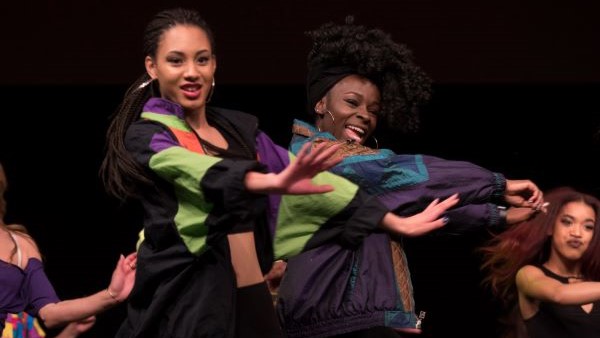
1990: Bryant’s first “Extravaganza Night” is held as part of its celebration of Black History Month. A vibrant, joyful celebration of Black excellence in culture, music, fashion, dance, and other areas, Extravaganza, as it is now known, has become one of Bryant’s most popular traditions and has been recognized as Rhode Island Program of the Year by the National Association of Student Personnel Administrators.
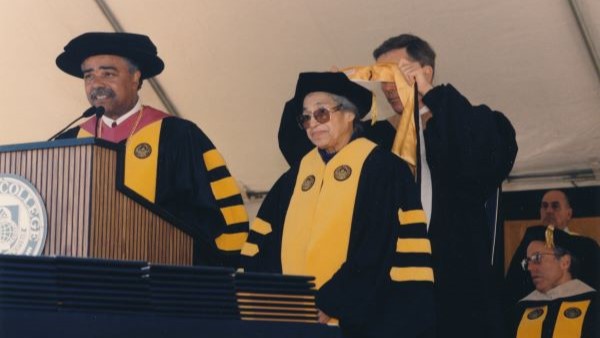
1995: Civil Rights leader Rosa Louise Parks ’95H receives an honorary Doctorate of Humane Letters from Bryant University. Parks, noted President Trueheart, “symbolizes the strength, tenacity, and triumph of one person who sparked a movement that swept the nation and the world and changed the course of history.” In her degree citation, she was recognized as the mother of the modern-day Civil Rights Movement in America and lauded for embracing “a lifetime commitment to advancing human dignity and human rights.”
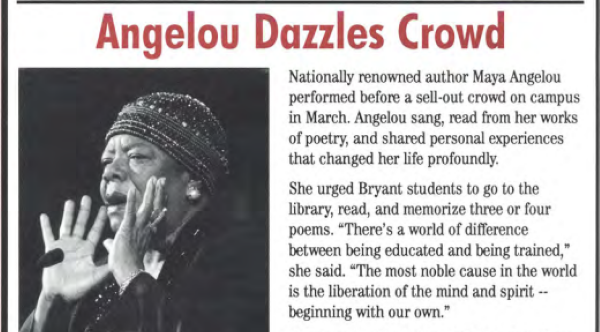
1996: Memoirist, poet, scholar, and Civil Rights activist Maya Angelou speaks on campus in front of a sold-out crowd during Women’s History Month in March. Angelou sang, read from her works of poetry, and shared personal experiences that shaped her life. “There’s a world of difference between being educated and being trained,” Angelou noted. “The most noble cause in the world is the liberation of the mind and spirit — beginning with our own.”
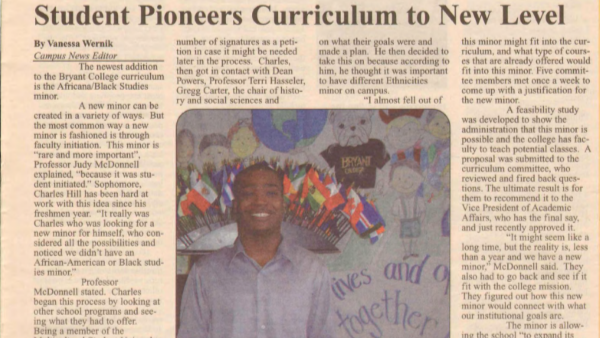
2004: An interdisciplinary liberal arts minor in Africana/Black Studies is introduced. Student Charles Hill ’06, who initially proposed the minor, was instrumental in the creation of the new program, which examines the intellectual traditions of, and cultural contributions made by, people of African descent all over the world. "Becoming more aware of diverse backgrounds helps people in their personal endeavors and in the business world as well,” Hill said.
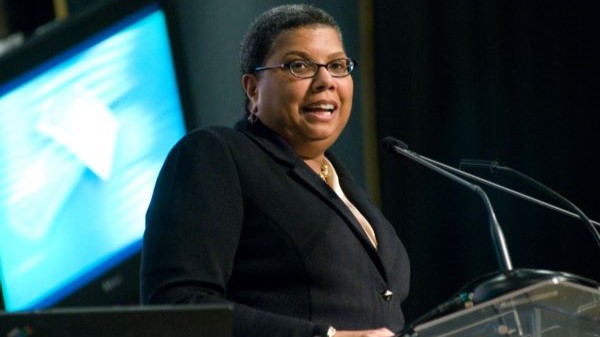
2009: Cheryl Watkins Snead ’06H, president and CEO of Banneker Industries, Inc. receives the Women’s Summit New England Businesswoman of the Year Award from Bryant. A member of the Board of Trustees for Bryant, Snead was also a charter member of the Greater Providence RI Chapter of The Links, Incorporated, an international women’s organization that partnered with Bryant to pilot the LIFE Program, which introduces minority students to opportunities in international business and foreign affairs.
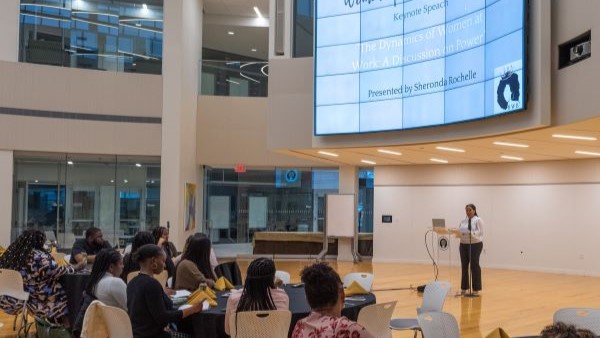
2018: Two of Bryant’s foremost student-activist groups, Black Women's Blueprint and W.O.K.E. Athletes, are founded. Black Women’s Blueprint provides inclusion and support to young women of color on campus through conferences, networking events, weekly meetings, and other opportunities. W.O.K.E. (Words of Knowledge Empower) Athletes works to create a safe space for student-athletes, giving them a voice of influence and aiding their holistic development to help them realize their passions, skills, and interests beyond their sport.
To learn more about Bryant’s history, and browse diverse materials produced by Bryant University students, faculty, and staff, visit digitalcommons.bryant.edu and the institution’s digital archives at digitalcommons.bryant.edu/library/.
Have your own special milestones to share as we celebrate Black History at Bryant University? Contact Deputy Editorial Director Casey Nilsson in Bryant’s Marketing and Communications Office at cnilsson@bryant.edu.